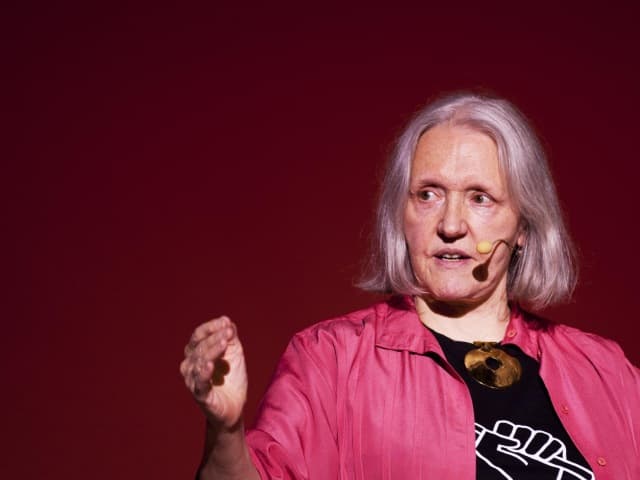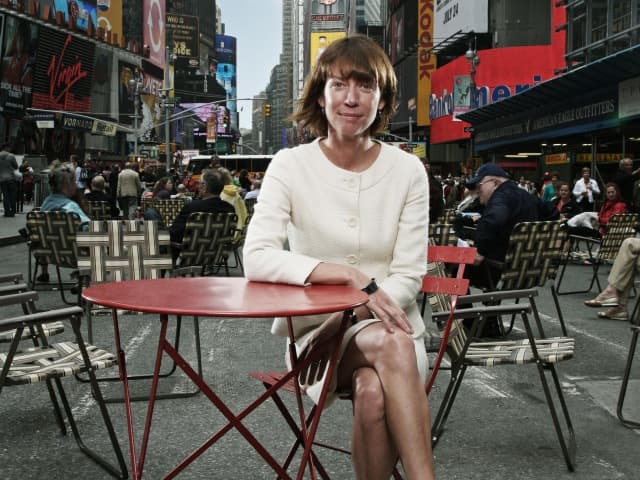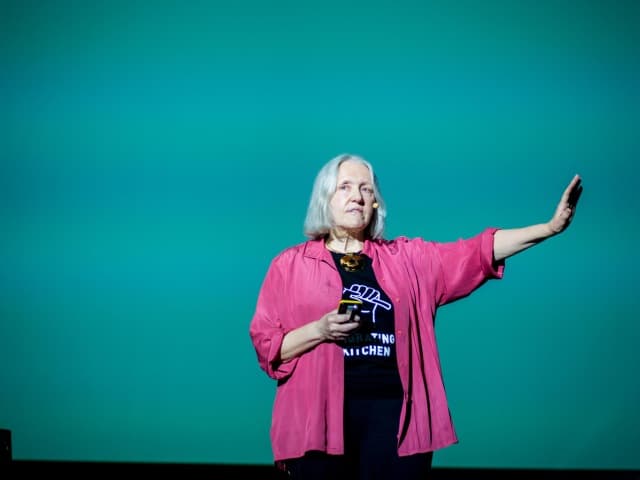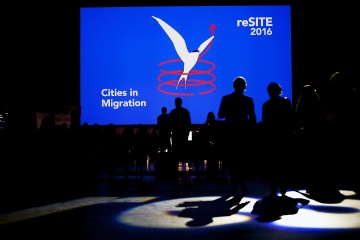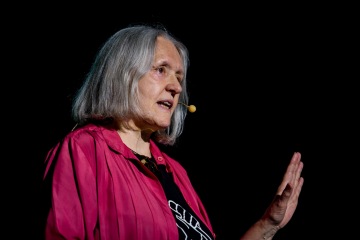
Five of the Most Influential Urbanists of All Time Spoke at reSITE
Inspired by Planetizen's the "Most Influential Urbanists" of all time list chosen by its readers, meet five of them in the reSITE network.
Since its very beginning, reSITE hosted the most inspiring thinkers and experts who influence the urban development of today's cities.
Five of reSITE's unforgettable speakers are featured on the list of 100 most influential urbanists of all times by Planetizen: Janette Sadik-Khan, Enrique Penalosa, Edward Glaeser, Jan Gehl and Saskia Sassen are listed next to Le Corbusier, Jane Jacobs and Michael Bloomberg.
According to Planetizen's Most Influential Urbanists list, Jane Jacobs is placed on the top - as we all would anticipate. Here, see the listed order of five of the most influential urbanists spoke at reSITE events until today:
"4. Jan Gehl - An architect and urban designer famous for refocusing design and planning on the human scale. Author of Life Between Buildings; Public Spaces, Public Life; and Cities for People, among other books."
"16. Janette Sadik-Khan - Commissioner of the New York City Department of Transportation from 2007–2013, while the nation's largest country pursued and delivered one of the most sweeping revitalizations of the city’s streets in a half-century. Currently the principal at Bloomberg Associates and chair the National Association of Transportation Officials (NACTO). Author of Streetfight: Handbook for an Urban Revolution."
"25. Enrique Peñalosa - Mayor of Bogotá from 1998 until 2001, and then again beginning in 2016, overseeing major transportation and public space projects in the city. Also served as the president of the Board of Directors of the Institute for Transportation and Development Policy (ITDP)."
"43. Edward Glaeser - Economist and professor of economics at Harvard University. His book, Triumph of the City: How Our Greatest Invention Makes Us Richer, Smarter, Greener, Healthier, and Happier, is a popular and widely cited reference for urban boosters."
"45. Saskia Sassen - Professor of Sociology at Columbia University and a member of the Committee on Global Thought. Coined the term "Global City," and authored Global City: New York, London, Tokyo, published in 1991.45. Saskia Sassen - Professor of Sociology at Columbia University and a member of the Committee on Global Thought. Coined the term "Global City," and authored Global City: New York, London, Tokyo, published in 1991."
Related Talks
Immigration and Decentralizing Cities with Saskia Sassen
World renowned urban sociologist, Saskia Sassen explains how city size and openness play a role in cosmopolitan cultural development. She highlights the stark contrast between smaller and larger cities and their abilities to accommodate the influx of not only migrants but also the “thick” local cultures which influence overall quality of life.
Janette Sadik-Khan on the Value of Our Streets + PlaNYC
Janette Sadik-Khan, former Commissioner of the Department of Transportation of New York City, discusses programs implemented in her time in the department and the positive changes these have made. She especially focused on safety and community opinion in her policies, and presents how they made safety programs appeal to people and how much safer she made the streets for pedestrians, cyclists, and drivers.
Saskia Sassen: City is an Extraordinary Animal
Saskia Sassen, professor of sociology at Columbia University, discusses the migrant experience relating to land use and the urban habitat. She focuses on the privatizing and corporatizing of modern cities and how these trends affect the people living in cities, especially disadvantaged and ignored populations.
Related Stories
Don’t Pull the Brakes
How to turn Prague into a more livable city?
6 Myths And Facts On 21st Century Urbanism
How to create livable and people-centered cities?
At the Borders Migration Can Be Photographed. In Cities It Can Be Solved.
Many extraordinary speakers come to reSITE 2016: Cities in Migration.
Meet the World’s Top Urban Experts at reSITE in Prague
reSITE 2016 Conference: Cities in Migration
